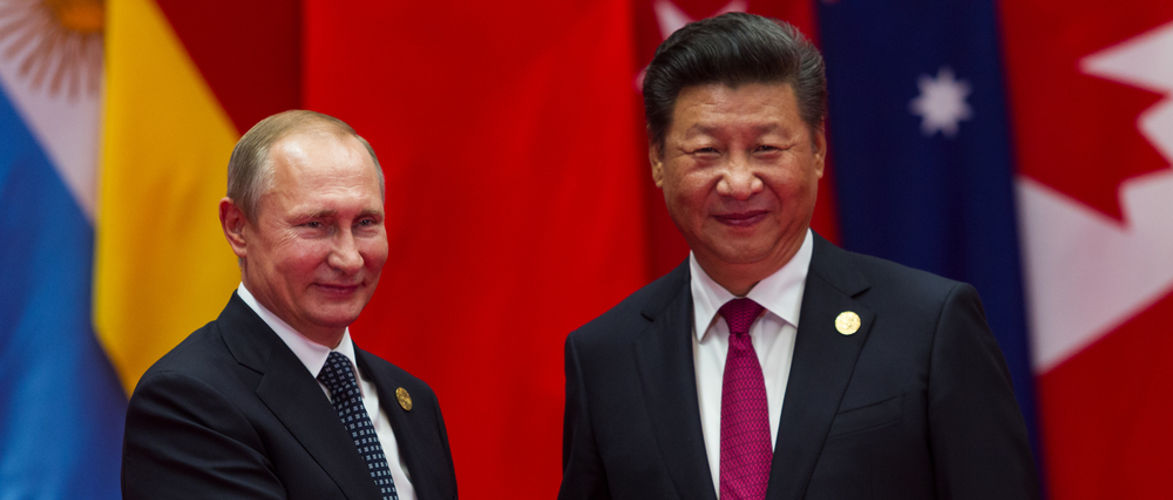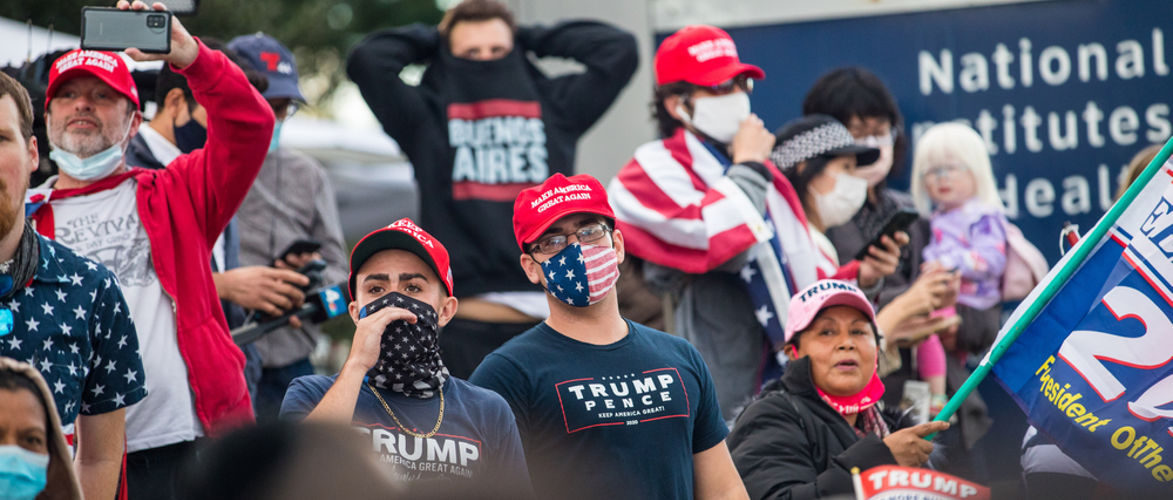By Rainer Rupp.
There are still more than four weeks to go until December 14, 2020, the day on which the electorates of the U.S. states gather for the Electoral College and elect the U.S. President for the next four years. Until then, Joe Biden is not yet president, even though the German media and politicians are already pretending that this is the case. But neither the German nor the US media will determine who is next US president.
In case Biden should become president, a faction is already emerging among Biden’s advisers that is pursuing a tougher course against Russia than previously under Trump, combined with better relations with NATO-Europe, in order to involve the Europeans in the intensified confrontation policy against Moscow.
Meanwhile, another faction, for reasons of economic and financial policy, is advocating a détente with Beijing, in order to return to the lucrative business model of US corporations during Biden’s term of office, namely the use of China as an extended workbench of the US economy. After all, the U.S. economy has since had enough time to realize that for the hundreds of millions of disciplined, eager and now well-trained Chinese workers, there is no alternative to China in India, Indonesia or Vietnam. The same applies to the perfectly functioning infrastructure in China.
This U.S. economic faction, which wants to do good business with China again, is opposed by the powerful and politically influential faction of the Military Industrial Complex (MIK), which dominates U.S. security and foreign policy. Biden had ingratiated himself with this in the election campaign, not only with his hard position against the Kremlin, but also against China. During the second and at the same time last debate of the presidential candidates on October 23, Biden had in fact praised the fact that it was Obama and he who, in connection with the new “pivot to Asia” strategy, had already taken a more aggressive stance in 2015, i.e. before Trump, on China’s claims to large parts of the South China Sea.
Literally, Biden said: „When I met with Xi, and when I was still vice president, he said ‘we’re setting up air identification zones in the South China Sea, you can’t fly through them.’ I said, ‘we’re gonna fly through them. We just flew B52/B1 bombers through it. We’re not going to pay attention.’“
The ‘Pivot to Asia’ was the decision to radically change the geo-strategic military structure of the US forces, with a new focus on Asia. Until then, strategic US planning had earmarked the majority of US military capacity for possible wars in Europe and the Near and Middle East. As part of the “pivot”, a start was made on regrouping 60 percent of the U.S. military potential for conflicts in Asia, i.e. against China. It can therefore be assumed that nothing will change in the next four years, even under a President Biden.
In July this year, the Trump administration categorically rejected most of China’s claims to the waters of the South China Sea. At the same time, the Washington warmongers have sought cooperation with Asian countries to keep them from the carts of their confrontation and containment course against China. This course is also likely to be continued under Biden. No one should therefore be surprised that the openly aggressive US policy against Russia since 2014 and the recently intensified confrontational policy against China has led to Moscow and Beijing finally being united on the same side of the “barricades” against the great hegemon in Washington.
Meanwhile, in Berlin, the foreign policy makers are trying to achieve something like a balancing act between the two poles for economic reasons alone – China has become more important for German exports than the USA. But this will not work as long as Germany does not free itself from its US dependency. But the German elites in finance, politics, media and paid science, all of whom are intimately interwoven with the US financial system, have no interest in this at all.
During Trump’s first term in office there were only isolated appeals for the EU – with Germany and France as leading powers – to break away from the US and pursue independent policies. With the hope of 4 years of Biden in the White House in Washington, in which the lucrative, but by Trump heavily damaged, neo-liberal business model of the Western elites is to be repaired, these voices for an EU independent from the USA have disappeared again.
The Cold War declared unilaterally by the USA against Russia and China, which according to the announcement under Biden is to be continued in a more intense manner, will also place demands on the still (!) superpower USA, which it cannot meet alone. For this reason, Europe, too, is to be harnessed to the carts of anti-Chinese US policy. From the new, confrontational tone of the self-proclaimed German quality media and from the Berlin political statements about China, one can already see that the German lapdogs are once again well-behavedly jumping over every little stick that their master in Washington is holding out to them. They are doing this even though they know that they are acting against the vested interests of the vast majority of the German people, who want nothing more than peace and the expansion of mutually beneficial trade with Russia and China, instead of armament and dangerous power games to secure global U.S. Rule.
It should also have become clear to the transatlantic vassals in Berlin by now that by being US-affiliated they are putting the economic future and prosperity of our country at risk. For the social and economic decline of the West can hardly be stopped, while neither Biden nor the possibly still victorious Trump can stop the increasingly close Chinese-Russian partnership. This partnership offers not only their own countries but the whole world state-led paths to progress and prosperity for the entire society, instead of Western neoliberalism with its winner-take-it-all mentality.
The following example illustrates the crucial difference between the US-led West on the one hand and China and Russia on the other:
One of the most important lessons of Chinese history is that providing for the basic physical needs of the people is the most important task for a ruler. However, those rulers who are involved in ruthless or endless wars that impoverish the people, or who otherwise ignore the basic needs of the popular masses, are soon swept aside. This is why employment and the creation of secure and constantly qualitatively better jobs, combined with growing individual and social prosperity, play such a major role in the People’s Republic of China’s new 14th Five-Year Plan. The totalitarian system of neoliberalism, on the other hand, has for decades made the lower classes of the population increasingly poorer and the small upper class fabulously rich. The instruments for this were mainly a) the privatization of the up to then public tasks up to the electricity and water supply, for the purpose of private profit maximization of the share owners of the large corporations, and b) the so-called “financialization” of almost all areas of life, in which in the meantime everything has a price but nothing has a value.
Moreover, in the West, the share of wages and salaries in the gross domestic product has been systematically pushed down in recent decades. This means that capital has no longer allowed the majority of workers and employees to participate in the productivity gains they themselves have achieved. At the same time, the neoliberal bosses have also stolen a large piece of the workers’ share of the overall economic cake. For example, according to the state-run US Bureau for Economic Analysis, in the last 50 years the share of wages and salaries in the gross domestic product GDP of the USA has fallen from 51.5 percent at the beginning of the 1970s to currently 43 percent. Even the US news magazine Time was astonished that over the period of 50 years this adds up to a total of 50 trillion dollars; 50 thousand billion dollars, i.e. a five with 13 zeros: 50,000,000,000 that have been withheld from US workers and employees, or stolen and added to the top 10 percent. In Germany, too, the trend is going in the same direction, although it only began in the early 1990s and is not yet as bad as in the United States.
The conclusion is that the business model of the western, neoliberal market economy is in decline and the model of controlled market economies of the Russian-Chinese Strategic Partnership is on the rise. Thus, Russia and China offer two development models, especially to the countries of the global South, which are radically different from the neoliberal dogma of the West, which is increasingly losing influence in these regions of the world and sees its exploitative business model in danger. This is precisely what the US and EU elites see as the alleged Russian and Chinese threat, against which they are now mobilizing military forces.
+++
Thanks to the authors for the right to publish the article.
+++
Picture source: plavevski / shutterstock
+++
KenFM strives for a broad spectrum of opinions. Opinion articles and guest contributions do not have to reflect the views of the editorial staff.
+++
KenFM now also available as a free app for Android and iOS devices! Via our homepage you can visit the stores of Apple and Google. Here is the link: https://kenfm.de/kenfm-app/
+++
Support us with a subscription: https://www.patreon.com/KenFMde
+++
You like our program? Information about further support possibilities here: https://kenfm.de/support/kenfm-unterstuetzen/
+++
Now you can also support us with Bitcoins.

BitCoin address: 18FpEnH1Dh83GXXGpRNqSoW5TL1z1PZgZK










Kommentare (0)